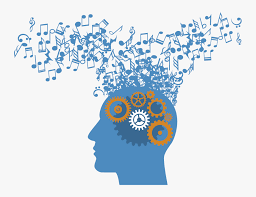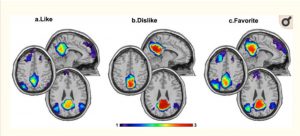
There is nothing more unifying, but also diversifying than music. This juxtaposition is part of what makes music a critical interest to all, including researchers. Music is unifying in the way that everyone share some kind of experience with it; nearly every human can identify a memory that is triggered by a certain song. Perhaps a smell triggers a memory of a song, or a certain place brings back the memory of the first time you heard a tune. While we all share some aspect of a musical experience, these experiences vary greatly. For some, it is creating music themselves that encompasses their musical experience. For others, myself included, simply listening to music is the most prominent experience, as I have absolutely no ability to create it myself. Regardless of musical experience, perhaps where music is most unifying is within our brains, where music is processed similarly for most members of the population.
Music in the brain
Music elicits a variety of consequences in the brain; however none may be more prevalent than the rewarding, “feel good” effect. Where does this come from? Music, like many things can trigger the brain’s reward pathway which leads to a dopamine dump that keeps you opening your Spotify to listen to the next song. Your brain even begins to anticipate this reward, however the brains reaction to this anticipatory event remains unclear. Furthermore, music has been shown to alleviate stress in the brain by activating the Hypothalamic Pituitary Axis which has a calming effect to the individual by modulating other areas of the brain associated with higher stress and arousal. In light of these findings, the potential for music therapy as a future, empirically proven technique becomes a scientific possibility. In a world where pharmacological options for disorders involving stress are the most common treatment, music therapy opens the opportunity for a complimentary option with relatively no side effects.
Your Favorite Song
While the broad stroking effects of music are fascinating, what happens when your experiencing music much more personally, such as your favorite song? If you’re like me, when I hear my favorite song it’s accompanied by memories, a distinct happiness with the rhythm and beat, as well as a myriad of memories that flood my consciousness and allow me to immerse myself in the song. As it turns out, there is neural evidence to support this experience. When you’re listening to your favorite song, your pre-frontal cortex (sense of self), hippocampus (memory), and lateral parietal cortex (association area) all become active and link together. The research suggests the all-encompassing feeling of your favorite song is indeed represented in this circuit. While listening to music you don’t prefer, only the association area of the brain lights up, which is merely responsible for your perception of the rhythm and sound. This fascinating phenomenon provides evidence that your personal perception of music, is correlated with your brain firing together and providing an immersive experience that floods the reward center of the listener.
Conclusion
Whether you’re a musician, or just a music lover, music is often an integral part of our lives. As it turns out, it’s also a uniquely processed in our brain that can even be leveraged for therapeutic benefits. So next time you hear your favorite song, shut your eyes, relax, and let your brain take over.